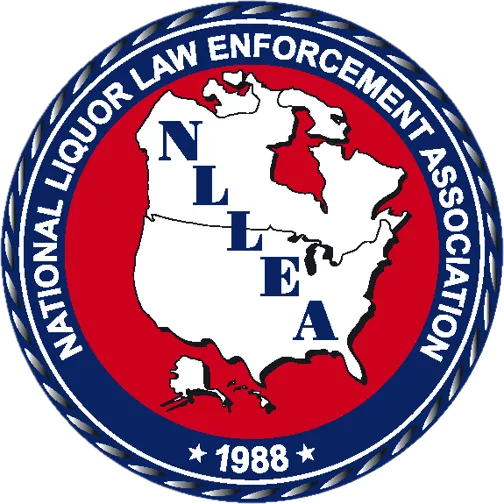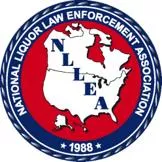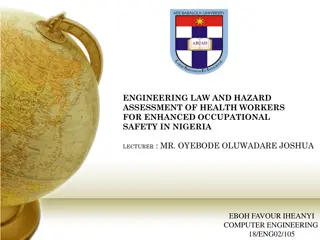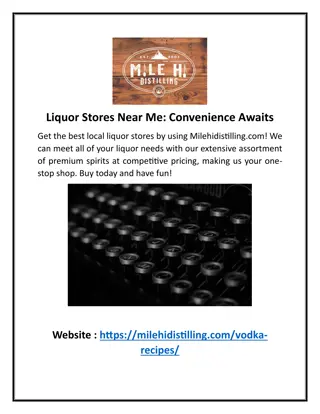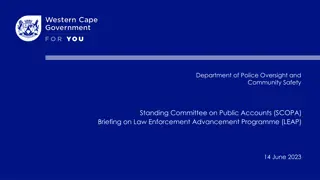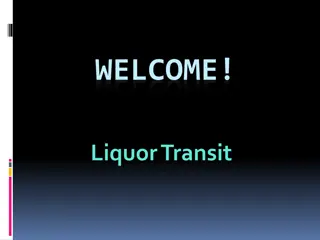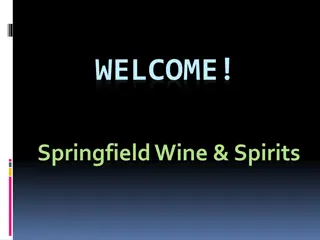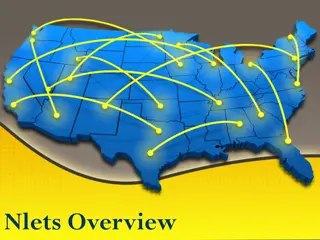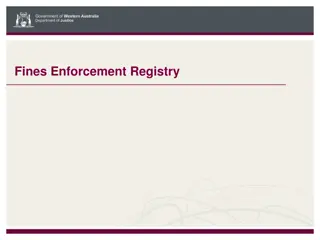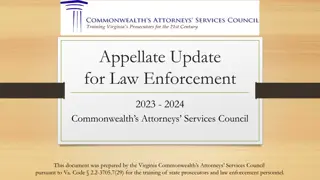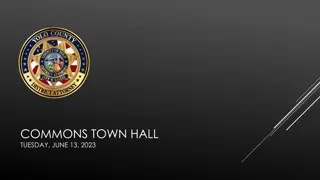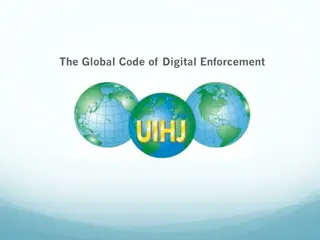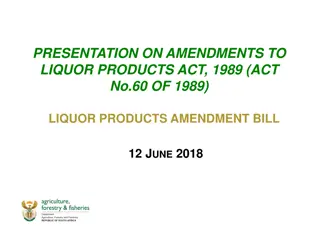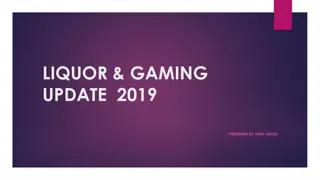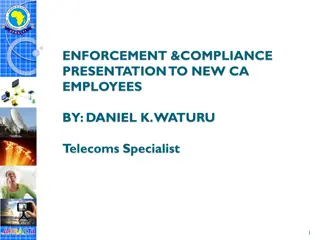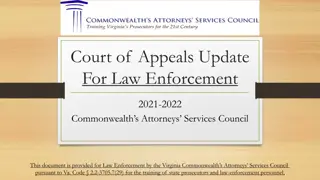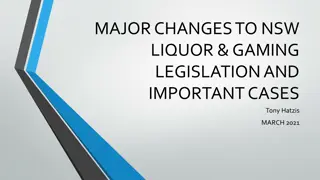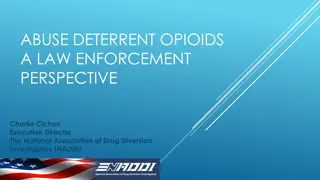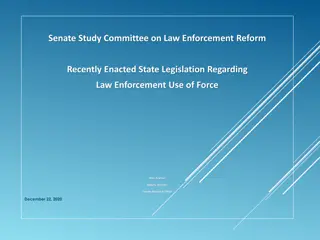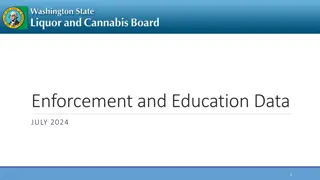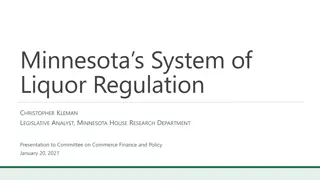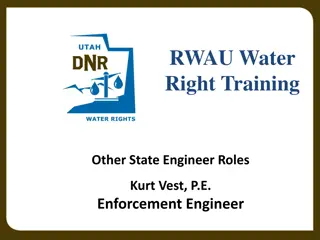Enhancing Liquor Law Enforcement: Strategies and Initiatives
European Network on Alcohol Law Enforcement, comprising state, provincial, county, municipal, and campus law enforcement personnel, focuses on building relationships, improving standards, disseminating research data, and enforcing policies to enhance public safety and reduce alcohol-related issues.
Download Presentation

Please find below an Image/Link to download the presentation.
The content on the website is provided AS IS for your information and personal use only. It may not be sold, licensed, or shared on other websites without obtaining consent from the author. Download presentation by click this link. If you encounter any issues during the download, it is possible that the publisher has removed the file from their server.
E N D
Presentation Transcript
Presented at the European Network on Alcohol Law Enforcement Stockholm, Sweden November 16, 2012
State, Provincial, County, Municipal & Campus Law Enforcement Personnel Sworn and non-sworn officers Vested interest in liquor law enforcement matters Non-governmental association Unaffiliated with the alcohol industry
To build close professional and personal relationships among liquor law enforcement officials. To secure a unity of action in law enforcement matters. To enhance the standards of liquor law enforcement personnel and the training of the law enforcement profession generally.
Improving the standards and practices of liquor law enforcement. Facilitating the professional development of our members. Publicly recognizing the role and achievements of liquor law enforcement in protecting and promoting public safety.
Collect and disseminate research data. Consult with law enforcement agencies to provide technical assistance on: Best practices Policy development Advise lawmakers on alcohol-related policy Conduct the NLLEA Training Academy Host Annual Conference
Research has demonstrated that enforcement of policies limiting service to underage persons and intoxicated patrons reduces alcohol-related problems and improves public safety and reduces crime.
Three key components: The perceived likelihood that a violation will lead to apprehension; 1. The perceived swiftness with which a penalty will be imposed; and 2. The extent of the penalty. 3.
Routine Enforcement: Compliance Checks, Bar Inspections, etc. Targeted Data Driven Enforcement: Problem Bars Enhanced Enforcement and Educational Operations
Underage Compliance Checks Sales to Intoxicated Persons Operations Support for Sobriety Checkpoints Undercover Operations (gangs, drugs, corruption, gambling, prostitution) Nuisance Abatement Compliance with operating hours, safety standards Retail Licensee Training
Compliance Checks/Decoy Operations Shoulder Tap Operations Party Patrol/Party Dispersal Fake ID Investigations Use and Manufacturing
Sales to Intoxicated Person Operations Alcohol-Related Fatality Investigations Place of Last Drink Data Nuisance Locations Involvement of other agencies
Build Awareness and Community Support
Editorial: Overserving rules must be enforced The Northwestern, August 9, 2012 Who's responsible when someone gets behind the wheel drunk? By law, bartenders have a responsibility to stop serving people who are drunk, and to take reasonable measures to ensure that those patrons are not putting others in danger when they leave the bar Those laws simply are not enforced in central Wisconsin. If bartenders are to be held responsible for overserving, bar owners should be, too, in the way that both are held responsible when taverns are caught serving minors. Local police offer training to taverns that's more in depth and detailed than state- required Internet courses. And last, police need to take seriously their duty to enforce the law. Police say it's difficult to prove the charge. But at a minimum, investigations into overserving charges ought to follow drunken driving fatalities.
Another bar in city shut down By Keith Eddings, Aug 14, 2012, Eagle Tribune The year-long crackdown on nightlife in the city claimed another bar last week as the state revoked Fuego Latino s liquor license following a string of fire code and liquor law violations, including serving a minor, offering illegal drink specials and allowing grossly overcrowded conditions. Fuego Latino is the third bar in the city to lose its liquor license during the last year, although the other two La Guira and Marabu Caf have remained open pending appeals. The city ordered the two bars to close following shootings inside them, including a double homicide in La Guira on Sept. 6, 2010 Closing Fuego Latino extends a crackdown on nightlife in Lawrence that began last summer, after a series of shootings and stabbings in the bars and nightclubs that climaxed Aug. 24 when a fight spilled out of a bar and ignited a brawl that spread across five city blocks.
Community awareness and support Training and resources Strategic partnerships Complimentary policies Evaluation of efforts Local level Innovative strategies
National Liquor Law Enforcement Association 11720 Beltsville Drive, Suite 900 Calverton, MD, 20705 USA Phone: 301-755-2795 Website: http://www.nllea.org rebecca.ramirez@nllea.org jwilson@nllea.org
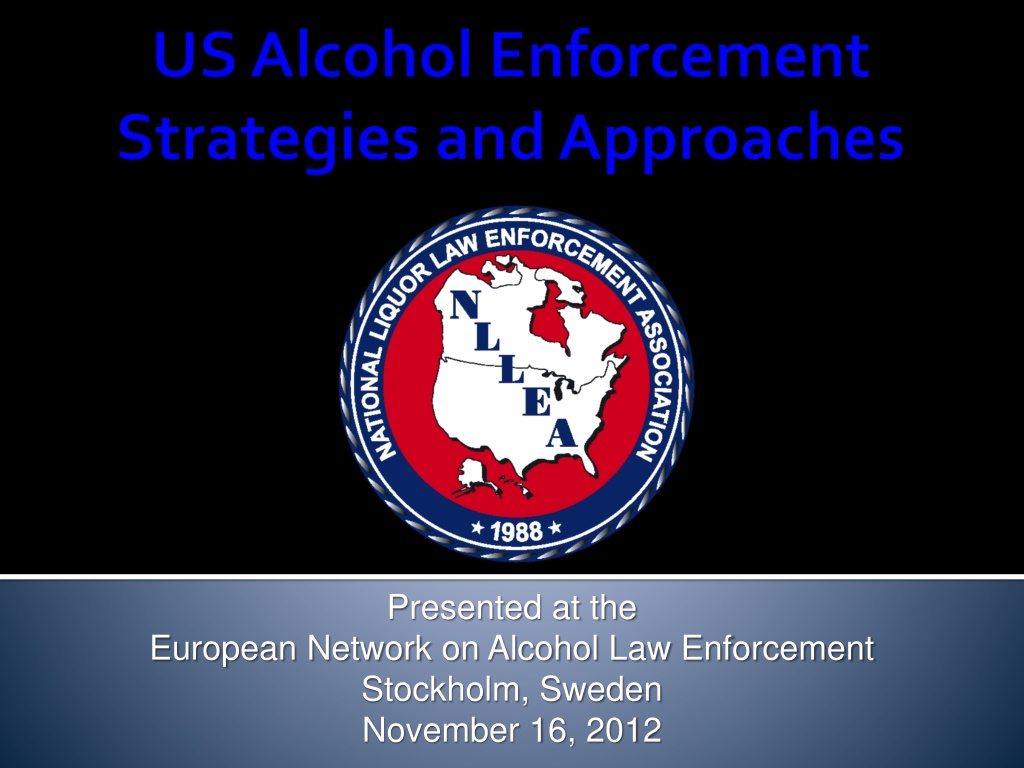
 undefined
undefined


